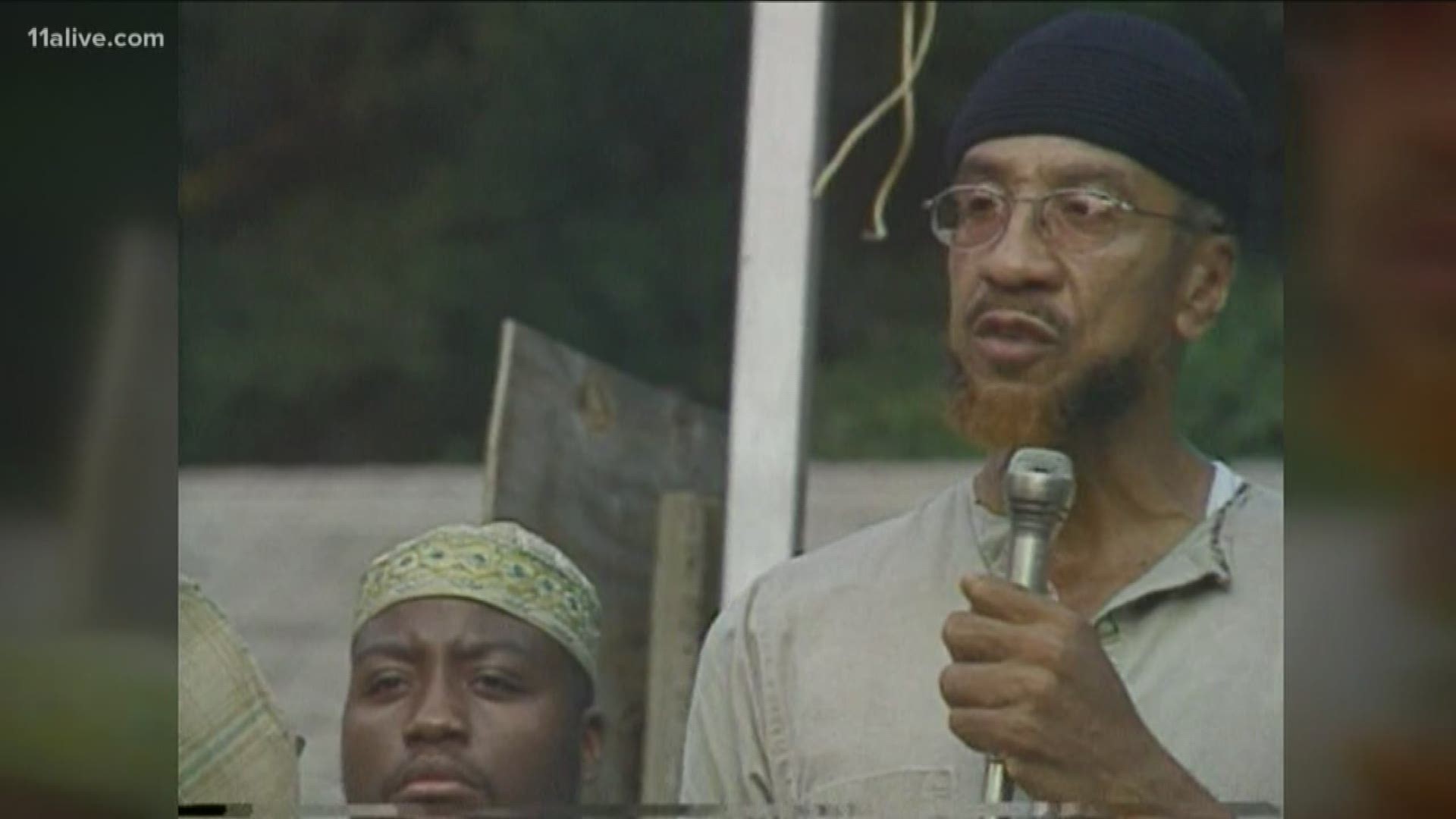ATLANTA — Attorneys for a onetime civil rights figure were in court today trying to get his conviction overturned for killing a Fulton County sheriff's deputy. Jamil Al-Amin was a Muslim cleric living in Atlanta when the deputy was shot outside his home while serving a warrant in 2000.
"We drove all night to get up here," said Razakhan Wali of Philadelphia, who was outside the 11th Circuit Court of Appeals in downtown Atlanta. He said he joined the Black Panther party co-founded in the 1960s by Jamil Al-Amin when he was known as H. Rap Brown. Brown had split from the non-violent civil rights movement to advance a more militant message of black power.
"He was a spokesman for black power, but in the best sense of it," said Constance Curry. She was a friend of Brown before he converted to Islam, changed his name, and became a Muslim cleric. After he moved to Atlanta’s West End, he became a community leader.
"He used to say black power doesn’t mean black people want the power," Curry said. "It means they want to be able to exercise the powers that they won."
It was in the West End neighborhood in March 2000 where two Fulton County sheriff deputies approached Al-Amin’s house to serve him a warrant. A shootout erupted. Al-Amin fled – and was captured and charged with the killing of deputy Ricky Kinchen.
The evidence against Al-Amin included his bullet-riddled automobile – and guns found near where he was captured, the ballistics of which matched the bullets fired at the deputies. A surviving deputy also identified Al-Amin as the killer in court.
Yet his supporters maintain his innocence.
"Cleaned up half of Atlanta before they framed him. And that’s exactly what they did," said Wali.
"It was obvious he wasn’t guilty," Curry said. "It was all wrong. It was all untrue evidence."
Al-Amin's backers point to statements made by the deputies that they had struck their assailant with gunfire. Another man with a gunshot injury later confessed to the crime, but prosecutors said it wasn't credible. When he was captured, Al-Amin had no gunshot injuries.
Al Amin’s attorneys argued that prosecutors violated Al-Amin’s right against self-incrimination by presenting a mock cross examination of him during closing arguments at his trial. A federal judge has described that as unconstitutional – but not enough to re-try the case.
"At this point, we’re just trying to make sure that this (appeals) court understands there was a harm associated with that constitutional violation," said Kairi Al-Amin, the son of the convicted cleric. He said Al-Amin has limited expectations for the appeal to actually win a new trial.
"We believe that we have more than enough to not only get us a new trial but to get my father out at some point," the younger Al-Amin said. "But we also understand this is a precedent-setting situation."
If the appeal is granted, Al-Amin's case could require the court to expand its outlook on what type of courtroom irregularities can trigger a new trial.
A decision from the three judge federal appeals court panel is likely days or even weeks away.

